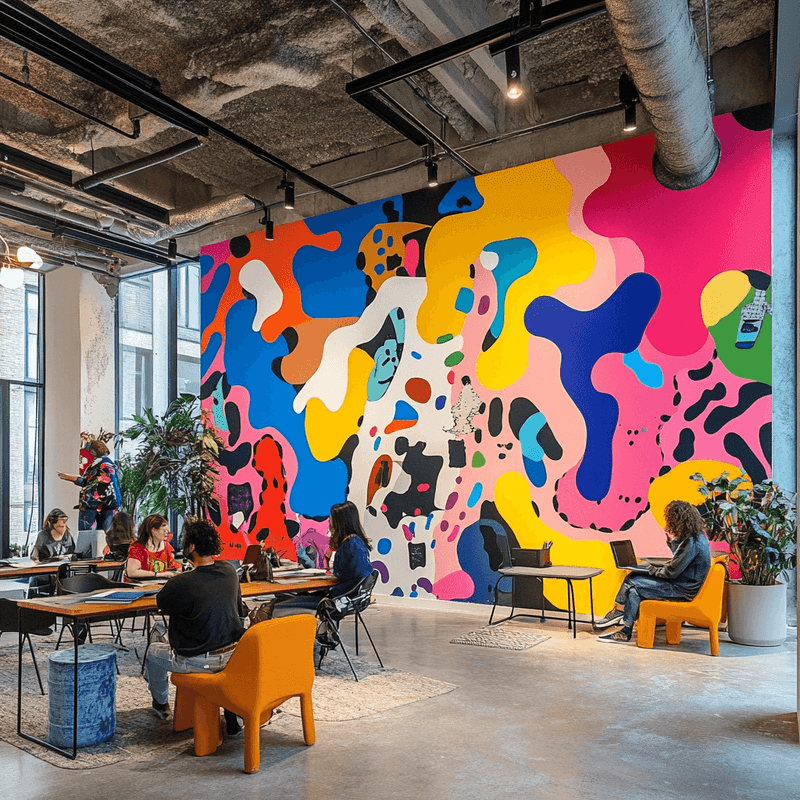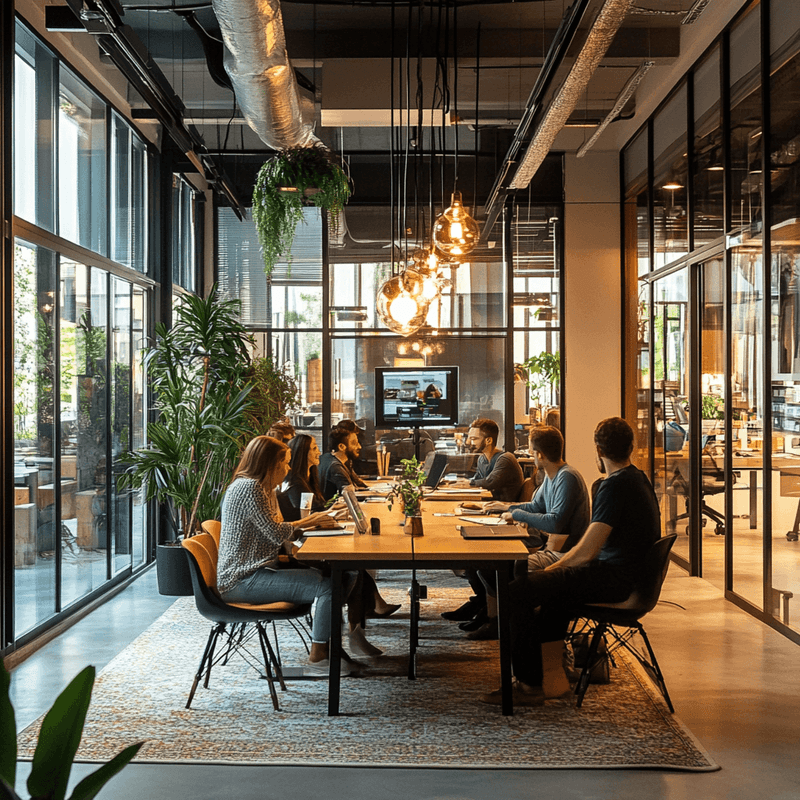
In the ever-changing world of work, the efficient management of office space has become a crucial element for organizations, particularly those moving to flex office. The introduction of desk booking is thus becoming an increasingly widespread practice, helping tooptimize the use of flexible workspaces while meeting the changing needs of the company and its employees. However, ensuring the successful adoption of desk booking requires a strategic approach in three key stages.
1. Identify user needs
Before implementing a desk booking system, it is essential to understand the needs and preferences of employees- the end users. This involves conducting in-depth surveys with teams to gather data on their work habits, their preferences for the office environment, and their expectations of the booking system. A participative approach, where employees are involved right from the start of the process, can foster acceptance and long-term commitment to the proposed solution.
The analysis of user needs must take into account the flexibility of working hours, the practice of telecommuting, the flex office policy, the need for proximity to colleagues and the specific requirements linked to certain tasks. This stage defines the key functionalities of the reservation system and ensures intelligent sharing of office space between users.
2. Deploying the right office reservation software
Choosing the right desk booking software is a critical step in ensuring the successful adoption of desk booking within the organization. User-friendliness of the interface, compatibility with existing systems and availability of technical support must all be taken into account when selecting the software.
It is essential to customize the software to the specific needs of the company. Integration with HRIS and other tools used by employees on a daily basis, such as Microsoft Teams, Outlook, Slack or Google, is decisive in smoothing the user experience.
For an effective implementation of desk booking in one's company, intuitive digital solutions such as Deskare, offer a complete work environment management platform, enabling organizations to easily manage desk bookings and optimize space utilization, while consolidating links between employees.
3. Tailor workspace layouts with reliable data
By analyzing data from the reservation system, we canidentify trends and team behavior with regard to workspace use. This information can be used to adjust office availability, optimize resource allocation and anticipate future space requirements.
Adapting office layouts based on the data collected is an ongoing process, requiring constant monitoring and responsiveness to changes in working patterns and team needs. By implementing regular evaluation mechanisms, it is possible to ensure optimal use of resources and foster a productive, collaborative working environment.
By adopting desk booking, companies can not only optimize their resources, but also transform their organizational culture towards an era of agile working, where flexibility, collaboration and innovation prevail. This system becomes the symbol of this transformation, enabling organizations to create working environments conducive to professional fulfillment and individual well-being. Beyond simple space management, desk booking represents a profound change in the way we conceive and practice work, offering the opportunity to position ourselves at the forefront of this revolution.
FAQ: answers to frequently asked questions about desk booking
How can I involve employees in the desk booking process?
Involving teams from the very start of the process can boost their commitment and buy-in to desk booking, particularly by understanding their working habits, gathering their feedback and consulting them on the desired booking system functionalities.
What are the benefits of a data-driven approach to desk booking?
Data collection not only helps to optimize the use of workspaces and their layout, but also to anticipate future needs and create a working environment that fosters collaboration and employee well-being.
How to choose the right desk booking software for your company?
The right desk booking software is first and foremost integrated with corporate tools such as HRIS, communication and calendaring tools, active directories and identity managers, as well as other smart office services. It's also important to assess the company's specific needs, compare the functionalities of the different solutions available and choose a user-friendly solution.
-
How do companies assert their identity in a shared space?

12/05/2025 How do companies assert their identity in a shared space?
Coworking spaces are places designed for the collective: so how can a company assert its own identity? While flexible space brands strive to be recognizable and identifiable among a thousand, they also enable their occupants to make their own workspaces their own.
-
Coworking: how to create, open and run a shared workplace?

03/05/2025 Coworking: how to create, open and run a shared workplace?
Coworking spaces are springing up all over France. How do they emerge today, and what room is left for new entrants to the flexible workspace market?
-
Coworking: how to prepare employees for flexible working?

03/04/2025 Coworking: how to prepare employees for flexible working?
As coworking spaces win over more and more employees, how can companies support this shift towards greater flexibility, without losing cohesion or performance? Here are a few tips!